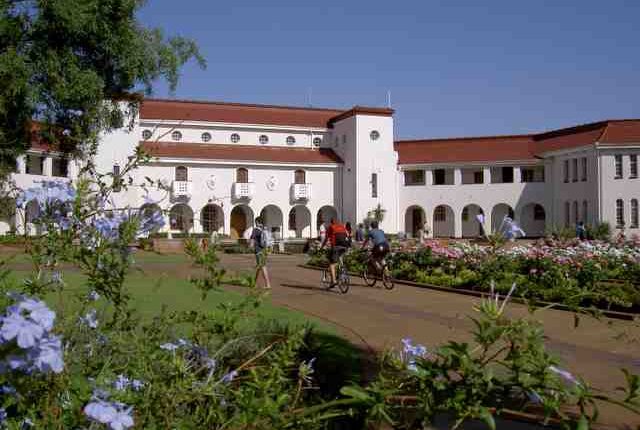North-West University: Study finds freshwater species at risk from threats linked to human activities
From climate change and associated extreme weather events to pollutants, over-utilisation and invasive species, human activities are the main threats to freshwater species in South Africa’s largest floodplain ecosystem.
This is according to the Water Research Group (WRG) of the North-West University (NWU), which for the past 10 years has been actively involved in studies relating to water preservation in the Pongola River and floodplain (PRF).
The group’s research has highlighted how freshwater species in the PRF are at risk from a number of anthropogenic threats – meaning hazards linked to human activities.
The research is led by Prof Nico Smit and Prof Victor Wepener of the WRG, in the Unit for Environmental Sciences and Management, together with international collaborators from KU Leuven (Belgium) and Hokkaido University (Japan). The team consists of specialist aquatic biologists and ecologists.
Their aim is to determine the risks to this important socio-ecological system of local and global impacts of climate change on water quantity and quality, among other things.
Vast biodiversity supports human and aquatic life
Originating in Mpumalanga, the Pongola River flows eastwards first, before turning north through the Lebombo mountain range in South Africa’s northern KwaZulu-Natal and finally flowing into Maputo Bay in Mozambique. The PRF constitutes one of the largest and the most biodiverse floodplain systems in South Africa.
The PRF is about 10 000 ha, increasing to 13 000 ha in full inundation, and is characterised by its permanent and temporary floodplain depressions (locally referred to as pans) that have either permanent, intermittent or no connectivity with the river, Prof Wepener says.
The natural flow regime determines the heterogeneity of the floodplain habitats, he explains.
“Pans that are river-fed function as spawning and breeding sites and as foraging areas for migratory species. The temporary pans are also known to harbour endemic species, therefore presenting a unique diversity.”
The connection between the river and floodplain also enables the exchange of organic matter, nutrients and aquatic vegetation. Thus, the flood pulse plays a key role in the health of the river ecosystem and productivity of the wetlands.
“It is the productive nature of the system that contributes to both the high biodiversity and the utilisation potential by local communities,” explains Prof Wepener.
An ecosystem under pressure
South Africa’s PRF is, in terms of aquatic organisms, highly diverse and of national and international importance. The study found that the aquatic ecosystem of the PRF is under extreme pressure from a vast array of human activities.
“These range from broadscale influences such as climate change and associated extreme weather events to local scale impacts such as pollutants, over-utilisation and invasive species,” says Prof Wepener.
Notwithstanding these pressures, the study also found that the PRF ecosystem has exhibited tremendous resilience in dealing with all these anthropogenic stressors.
There is currently no evidence that points towards a loss in species diversity. This is despite a more than 10-fold increase in the human population relying on the ecosystem services provided by the PRF, a five-year ongoing below-average rainfall period with no flood release from the Pongolapoort Dam, and a reduction in the size of the area under formal protection.
However, the study found that at least for fishes, although all species are still present, there has been a clear shift in the community structures and dominance.
“The main question for the PRF therefore still remains: how long, and especially in the light of the continued lack of flooding events and increasing human settlement and activities, can the socio-ecological system of the PRF stay resilient before it collapses completely? To answer this very important question, we propose that future research into this and similar systems in Africa and globally should follow the One Health approach,” says Prof Wepener.
One Health is a multidisciplinary and collaborative approach to ensure the optimum health of humans, animals and the environment.
While the vast and diverse Pongola ecosystem has held up well so far, it is only a matter of time before this changes. High-level expertise in aquatic biology and ecology has never been more important.

